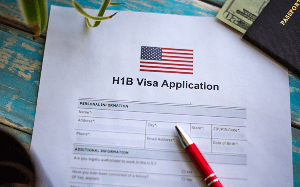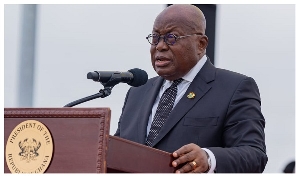- Home - News
- TWI News | TV
- Polls
- Year In Review
- News Archive
- Crime & Punishment
- Politics
- Regional
- Editorial
- Health
- Ghanaians Abroad
- Tabloid
- Africa
- Religion
- Election 2020
- Coronavirus
- News Videos | TV
- Photo Archives
- News Headlines
- Press Release
General News of Tuesday, 10 February 2004
Source: GNA
Tribunal gives reasons for bail on alleged drug barons
Accra, Feb. 10, GNA- An Accra Regional Tribunal which unanimously granted bail to six members of the cocaine smuggling syndicate, on Tuesday declared that there was no law in the country stipulating that people charged with narcotic offences should be refused bail. It noted that bail could be granted to persons charged with narcotic offences under the country's law.
Kevin Gorman, 59, an American; Mohammed Ibrahim Kamil; and Alan Hodson 45, David Logan 43, and Frank Lavelrick 43, all British and 45-year-old Sven Herb, a German, are accused of conspiring and possessing narcotic large cache of the drugs without authority.
Gorman was additionally charged for using his property, (his house} for narcotic offence.
The six accused persons have pleaded not guilty and were granted 300-million cedis bail with two sureties each to be justified. The court adjourned the case to today to give reasons for granting the accused bail.
Mr Justice P.K. Aggrey, Chairman of the three-member Tribunal said that bail could only be refused in offences such as robbery, piracy, hijacking and rape which the accused had not been charged with. It was of the view that the offence was grievous and punishable by law, but the lawmaker did not consider those, adding, "if the law maker did not consider the gravity of narcotic offences, the law court cannot consider them either."
It noted that investigations into the matter had been completed and accused had not hampered or interrupted with investigation. "Bail could however be refused if they had hampered or interrupted with investigations, under the law."
"Prosecution did not also object to submission made by counsels that the accused person had fixed place of abode hence the tribunal went ahead and gave specified bail condition," the tribunal added.
Earlier, Mr Anthony Gyambiby, Chief State Attorney informed the court that the prosecution had filed a motion of Stay of Execution pending an appeal at the Court of Appeal.
Mr Gyambiby however, told the court that they were ready to put their witnesses in the dock to testify to the court but defence counsel objected, saying their clients have been served with some court documents and they needed time to reply them.
They therefore prayed the tribunal to give them enough time to prepare for hearing.
The Tribunal obliged and adjourned the matter to February 24, this year.
On February 3, this year, the Tribunal after admitting the accused persons to bail, ordered them, to deposit all their travelling documents at the Court's Registry.
They were also to report every Tuesday to the Registrar of the Tribunal and the Investigator in-charge of the case until the final determination of the case.
Mr Addo Attuah, Mr Owusu Fordjour and Mr Koblah Senanu are representing the accused persons.
Mr Gyambiby had earlier told the tribunal that Gorman was a Director, Shareholder and Operations Manager of Tuna-To-Go, a shipping company based in Tema.
He said on January 7, the Narcotics Control Board (NACOB) and the Drug Enforcement Unit (DREU) of the Police Service raided the residence of Gorman and discovered bales and parcels of whitish substances suspected to be cocaine concealed in a specially constructed hole or compartment in a wall in the corridor behind a large dressing mirror. The Chief State Attorney said Logan, Lavelrick and Hodgson, who were living in the house with Gorman at the time of the raid, were confronted with the substance.
He said Gorman told the Police that the bales and parcels were brought there for safe keeping by one Yakuba for a fee of 50,000 dollars. The rest of the suspects including Herb, who arrived later, denied knowledge of the substances.
Mr Gyambiby said investigations revealed that on December 31, 2003, Kamil delivered the bales or boxes of suspected drugs to Gorman's house. Herb, who was in the house of Gorman when Kamil brought in stuff, assisted them to offload them upstairs.
According to Mr Gyambiby, examination by the Ghana Standard Board (GSB) has revealed that the whitish substances were cocaine.










